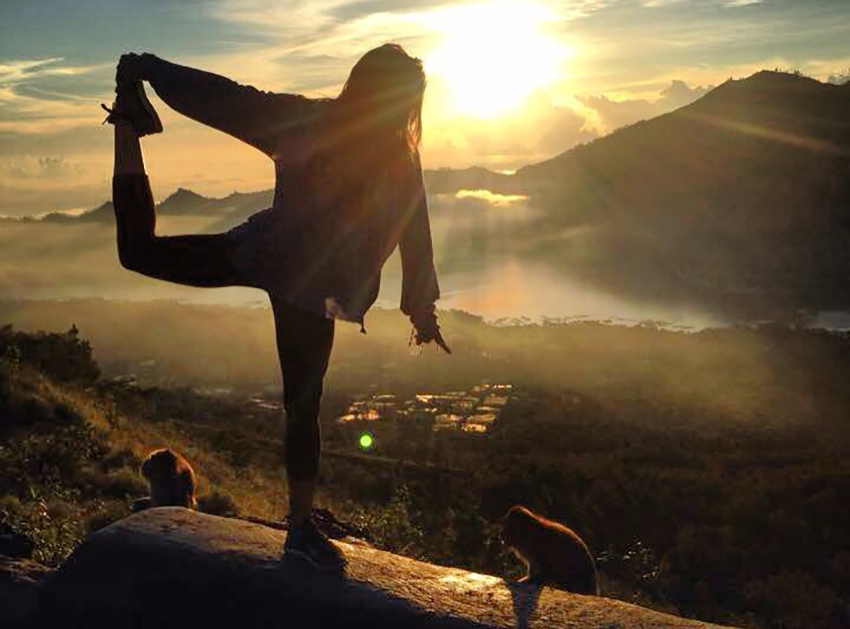This Nonprofit Uses Fitness to Inspire Sobriety

Longo on her trip to Bali. Photo provided
A new nonprofit is making sobriety about more than meetings and 12-step processes.
NamaStay Sober helps newly sober individuals overcome addiction through fitness, financing unlimited monthly memberships at yoga, rock climbing, and boxing studios for people who need them most. All costs are covered by private donations and fundraisers.
“Exercise sparks dopamine production and rebuilds the damages that addiction has on the brain,” explains founder Jamie Longo. “It’s a physical outlet that creates a mindfulness in your body, and over time it becomes a craving in its own right.”
For Longo, the cause is personal. She lost a close friend to opiate addiction, and says that the physical and community outlet NamaStay provides may have helped him recover. That tragedy, combined with her own sober, yoga-filled trip to Bali, sparked the idea for NamaStay Sober.
“He was one of those cases where he would get sober and he would be really physically active, and then he would slowly get back into [drugs],” she says of her late friend. “The thing that was really missing for him was the sense of community in a sober environment.”
As such, NamaStay is about more than working out—it’s about making clean living part of a fun, active lifestyle. Longo says the goal is to eventually hold weekly events that can act as an alternative to going out to bars or clubs, “things that people can go to on Friday and Saturday nights that are really funky and fun and young and aren’t about alcohol and drugs,” Longo says.
To start, the nonprofit is holding a fundraiser on January 29, starting with an hour-long Pilates and yoga class, and ending with a dance party. There will also be food, on-site massages, and a comedy act.
NamaStay is still in its pilot phase, currently sponsoring six people, but once the program is fine-tuned, Longo says it will expand to New York, D.C., Miami, and Pittsburgh, in pursuit of bringing sobriety and fitness to as many people as possible.
“It’s trying to change the view of what sobriety means to people,” Longo says.


